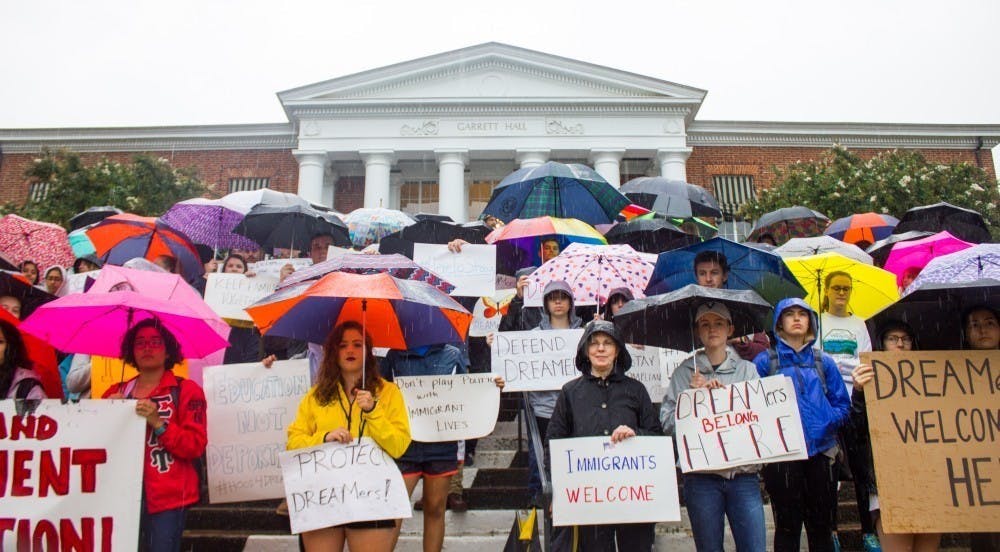Documentation and legal status of individuals residing in the United States has been a constant topics of conversation during the Trump administration. The Obama administration instituted Deferred Action for Childhood Arrivals to protect nearly 800,000 young people from deportation who were brought to America as children and grants them the ability to work or attend school legally in the U.S. In 2017, President Donald Trump announced that he planned to end DACA and the Supreme Court is currently reviewing Trump’s moves to take away DACA status from these recipients. Though these problems have their roots in in the national immigration debate, the future of the DACA program will have a profound effect on students at the University.
In 2014, the University started allowing in-state DACA students to attend U.Va. while paying in-state tuition. Previously, all undocumented immigrants were required to pay out-of-state tuition. In August, the University shockingly announced that it would be offering even more to in-state DACA students — allowing them to receive need-based financial aid. While this was a step in the right direction for the University, it is still far from where we need to be in order to serve potential DACA recipients from across the country.
In Virginia, there are approximately 12,000 DACA recipients — a small number in comparison with the 800,000 recipients nationwide. Restricting financial aid to only in-state students is not only discriminatory but is also detrimental to the education of thousands of students. By not granting out-of-state DACA students any form of financial aid, the University is essentially undermining their status and safety in this country. People granted this status are here to work and learn, proven by the data showing more than 97 percent of recipients are currently employed or in school. Universities like U.Va., however, make getting an education much harder — and much more expensive — for thousands of these students.
Furthermore, as of 2012, it is estimated that there are 3.2 million undocumented children and young adults under 24 years old within the U.S. These are individuals with the same aspirations as anyone else and should have the right to build a life for themselves in this country. Without the proper access to an affordable education, it makes it far more difficult for undocumented people to find a job or provide for their families.
This injustice is compunded by the fact many undocumented immigrants — even those who do not currently have DACA status — were brought to the United States as children. They have grown up here and the U.S. has become the only home they have ever known. As such, it would be inhumane and discriminatory to deny them the ability to receive an affordable education like the rest of us.
University President Jim Ryan has stated on many occasions that he wants U.Va. to be “both great and good.” He says that to do so we must be a community that helps our neighbors. But the fact of the matter is that these DACA students and undocumented immigrants are our neighbors, and they need our help. The University’s own statement of purpose says that it “serves the Commonwealth of Virginia, the nation, and the world.” With this in mind, it is unclear why we would turn our back to DACA students outside the Commonwealth simply because of their geographic location.
Ryan has also announced on many occasions, including the convocation for first-year students, that he wants the University to move up in national rankings. However, if he wants us to do so, maybe we should mirror the attitudes taken by prestigious colleges toward DACA recipients. Many of the leading colleges in the nation now grant financial aid to students with differing legal statuses. Cornell University has a special provision which considers DACA students to be domestic students thereby making theme eligible for financial aid. Other universities such as Harvard, Princeton, Yale and Notre Dame also don’t make a distinction based on citizenship and cover 100 percent of financial need for undocumented students.
Introducing these financial aid policies would be beneficial to the University by increasing diversity and therefore adding new perspectives to our community. If Ryan truly wants to see his college named among and ahead of those leading schools, the University must grant financial aid to all DACA students.
Valerie Speirs is a Viewpoint Writer for The Cavalier Daily. She can be reached at opinion@cavalierdaily.com.





